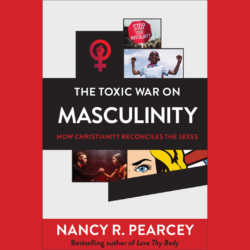Anxiety is on the rise in America. Anxiety disorders afflict an astounding 40 million adults in the United States today according to the Anxiety and Depression Association of America. Keeping in mind that these include only those with official diagnoses. The actual number of those vexed by chronic anxiety is likely much higher. Beyond these disorders, many of us feel beset with worry about our finances, relationships, work, parenting, health, success, and a thousand other daily stressors. What can we do? Fortunately, the Scriptures can help us face this difficult issue.
One person who provides a wonderful model for dealing with anxiety is David. After he had killed Goliath, King Saul brought him on as a leader in the army. After one successful battle, the Israelites were celebrating with singing and dancing, playing tambourines and other instruments.
1 Samuel 18:7-9
7 And the women sang to one another as they celebrated, “Saul has struck down his thousands, and David his ten thousands.” 8 And Saul was very angry, and this saying displeased him. He said, “They have ascribed to David ten thousands, and to me they have ascribed thousands, and what more can he have but the kingdom?” 9 And Saul eyed David from that day on.
The next day, Saul felt agitated, so David came in to play the lyre. Suddenly, Saul threw a spear at David to pin him to the wall. David evaded him twice but continued serving Saul with distinction. For me, one spear incident would be enough to end my employment as the king’s personal musician, but David stayed on. Then Saul thought to himself, “Let not my hand be against him, but let the hand of the Philistines be against him” (1 Sam 18:17). To motivate David to fight more and take more risks, he offered to give him his daughter, Merab, as wife if he would be valiant and fight the Lord’s battles. However, when the time came, Saul gave Merab to another suitor, but promised David his other daughter, Michal. Saul thought to himself, “She may be a snare for him” (v21). But, then he added that since he knew David couldn’t possibly afford to pay the bride price for the king’s daughter, he would accept the foreskins of a hundred Philistines. Once again, Saul endeavored to put David in a life-threatening situation so that he might be rid of him. However, far from suffering injury or death, David returned with two hundred foreskins and subsequently became the king’s son-in-law.
Now, through all of this, it’s not clear just how much ill-will David perceived from Saul. However, it is clear that Saul became increasingly exasperated with David’s good fortune. Next, he outright ordered his servants to kill David. Fortunately, his son Jonathan was there and convinced the king to retract his order, reminding him of David’s loyalty and innocence. Even so, it wasn’t long before David won more battles and Saul’s envy again manifested itself in once again throwing a spear at David while he played the lyre. David escaped and went home to his wife who warned him that her father was going to kill him soon if he didn’t flee. She helped him climb down from her window, and he escaped to the prophet Samuel. Once Saul discovered David’s location, he sent messengers to David, but the spirit of God rushed upon them such that they began prophesying and returned home empty-handed. Saul probably concluded that his first group of messengers was the problem, so he sent a second. The same bizarre report came back, so he sent a third, but they also failed. Then he went himself.
1 Samuel 19:22-24
22 Then he himself went to Ramah and came to the great well that is in Secu. And he asked, “Where are Samuel and David?” And one said, “Behold, they are at Naioth in Ramah.” 23 And he went there to Naioth in Ramah. And the spirit of God came upon him also, and as he went he prophesied until he came to Naioth in Ramah. 24 And he too stripped off his clothes, and he too prophesied before Samuel and lay naked all that day and all that night. Thus it is said, “Is Saul also among the prophets?”
If Saul was frustrated with David before, now he was positively homicidal. David made one more attempt through Jonathan to convince Saul to back off, but the answer came to Jonathan in the form of a spear rushing at him. (As an aside, it’s rather impressive how bad Saul was at hitting his targets.) David took off on the run, stopping at Ahimelech the priest for some quick supplies before arriving in Gath. Since this was the Philistine town that Goliath was from, they had heard of David and immediately arrested him to present him to King Achish. Can you imagine David’s anxiety here? He narrowly escaped his own king who was intent on killing him, and now a Philistine chief had captured him. He was certain to face death as soon as he got to the palace.
1 Samuel 21:12-15
12 And David took these words to heart and was much afraid of Achish the king of Gath. 13 So he changed his behavior before them and pretended to be insane in their hands and made marks on the doors of the gate and let his spittle run down his beard. 14 Then Achish said to his servants, “Behold, you see the man is mad. Why then have you brought him to me? 15 Do I lack madmen, that you have brought this fellow to behave as a madman in my presence? Shall this fellow come into my house?”
They released David, and he escaped to live in a cave. He would remain an exile from his native land for the next eight years, hiding out, always looking over his shoulder, knowing that at any moment Saul could find and kill him. Now, I take so much time reviewing David’s life so you can put yourself in his shoes. Many of us face anxiety of various types, but probably not as acute as what David dealt with year after year while Saul hunted him like a dog. What’s more, David didn’t allow his chronic anxiety to eat him alive. We know this because when the whole ordeal finally ended and Saul died, David composed a eulogy poem.
2 Samuel 1:19-24
19 “Your glory, O Israel, is slain on your high places! How the mighty have fallen! 20 Tell it not in Gath, publish it not in the streets of Ashkelon, lest the daughters of the Philistines rejoice, lest the daughters of the uncircumcised exult. 21 “You mountains of Gilboa, let there be no dew or rain upon you, nor fields of offerings! For there the shield of the mighty was defiled, the shield of Saul, not anointed with oil. 22 “From the blood of the slain, from the fat of the mighty, the bow of Jonathan turned not back, and the sword of Saul returned not empty. 23 “Saul and Jonathan, beloved and lovely! In life and in death they were not divided; they were swifter than eagles; they were stronger than lions. 24 “You daughters of Israel, weep over Saul, who clothed you luxuriously in scarlet, who put ornaments of gold on your apparel.
This excerpt is simply astonishing! Can you imagine how you would react if Saul had bullied you, persecuted you, tried over and over to murder you? Would you emerge from eight years of hard living and uncertainty with the kind of heart that would say, “Saul and Jonathan, beloved and lovely?” Would you urge the daughters of Israel to “weep over Saul?” David wasn’t putting this on; he genuinely mourned not only Jonathan, but also Saul’s demise—even though it meant his own freedom. So, in light of David’s stunning forgiveness and purity of heart, we must ask how he dealt with the grinding pressure of chronic anxiety that weighed so heavily upon his heart day after day, month after month, and year after year, because clearly, he unlocked some secret that’s worth knowing.
Fortunately for us, we can see the state of David’s heart and how he dealt with his fears because he wrote about his plight in the Psalms. Space won’t allow us to look at more than a few quick excerpts, but I trust that considering a few examples will be enough to glean key strategies that can help us today.
Here is our first example.
Psalm 34:1-8
1 I will bless the LORD at all times; his praise shall continually be in my mouth. 2 My soul makes its boast in the LORD; let the humble hear and be glad. 3 Oh, magnify the LORD with me, and let us exalt his name together! 4 I sought the LORD, and he answered me and delivered me from all my fears. 5 Those who look to him are radiant, and their faces shall never be ashamed. 6 This poor man cried, and the LORD heard him and saved him out of all his troubles. 7 The angel of the LORD encamps around those who fear him, and delivers them. 8 Oh, taste and see that the LORD is good! Blessed is the man who takes refuge in him!
Do you take refuge in God? This is not automatic, but something we must actively do. He does not say “God is my refuge,” but “take refuge in him.” Imagine you are on a hike in the mountains, miles away from any buildings. Suddenly, the sky grows dark, and a mighty storm rolls in. Thunder booms, lightning flashes, hail and rain start pelting the ground. What do you do? You find some way to get shelter. Maybe you find a huge tree or a cave to flee to for safety. You take refuge. David took refuge. In his moment of trial, when his life was in danger, when his fears swirled around in his head, he went to God and took refuge.
So many of us run from our fears. We don’t face them but instead become experts at avoiding them. Recently, I heard the story of a boy who had a fear of getting stung by a bee. At first, his parents didn’t think much of it and accommodated him as best they could. However, the more they protected him and played into his fear, the bigger it grew. Over time, he couldn’t even go outside without major issues. His mother tried reasoning with him, but still, the fear grew. Before long, he suffered from full-blown agoraphobia. Do you know how they finally helped their son? His dad offered him money. He said, I’ll pay you $20 if you go outside and get stung by a bee. This kid really wanted the money, and his parents assured him that the sting would hurt but it wouldn’t kill him. He did it. He went out and faced his fear and got stung. After the experience, he was cured. Now, I’m not saying that every situation is the same as the boy here, but there is a truth we can learn from it about facing our fears. Fear lurks in the shadows and dark places, but diminishes once light rushes in. David did not run from his fear. He faced it and brought it to God. He asked God to deliver him, and it worked! It didn’t make Saul disappear or stop trying to kill him. No, but it did enable David to continue in hiding without allowing his terror to paralyze him or embitter his soul.
Here is another example of David working through his anxiety.
Psalm 55:1-8
1 Give ear to my prayer, O God, and hide not yourself from my plea for mercy! 2 Attend to me, and answer me; I am restless in my complaint and I moan, 3 because of the noise of the enemy, because of the oppression of the wicked. For they drop trouble upon me, and in anger they bear a grudge against me. 4 My heart is in anguish within me; the terrors of death have fallen upon me. 5 Fear and trembling come upon me, and horror overwhelms me. 6 And I say, “Oh, that I had wings like a dove! I would fly away and be at rest; 7 yes, I would wander far away; I would lodge in the wilderness; Selah 8 I would hurry to find a shelter from the raging wind and tempest.”
We don’t know exactly what was going on in his life at this time, but it’s clear that his enemies were pursuing him. His heart was in anguish. Is your heart ever in anguish? David wanted to disappear—to fly away and hide in the wilderness. Ultimately, he went to God with his pain and prayed for deliverance.
Psalm 55:16-23
16 But I call to God, and the LORD will save me. 17 Evening and morning and at noon I utter my complaint and moan, and he hears my voice. 18 He redeems my soul in safety from the battle that I wage, for many are arrayed against me. 19 God will give ear and humble them, he who is enthroned from of old, Selah because they do not change and do not fear God. 20 My companion stretched out his hand against his friends; he violated his covenant. 21 His speech was smooth as butter, yet war was in his heart; his words were softer than oil, yet they were drawn swords. 22 Cast your burden on the LORD, and he will sustain you; he will never permit the righteous to be moved. 23 But you, O God, will cast them down into the pit of destruction; men of blood and treachery shall not live out half their days. But I will trust in you.
I so love the honesty of the Psalms. David didn’t get his answer right away. He cried out day after day in the evening, in the morning, and at noon. He poured out his complaints to God with raw openness. So many of us pray for something once or maybe a handful of times and then give up. David went on for eight years in exile! God delivered him over and over from imminent danger, but He did not kill Saul or enable David to return. No, David had to continue on in his banishment year after miserable year. Considering his life-situation, how much more valuable was his advice when he said, “Cast your burden on the LORD and he will sustain you?” These were not nice words or empty platitudes. He meant them because he experienced God sustaining him time after time. He resolved to trust in God, to cast his burdens upon God, to moan and utter his complaints to God, and God sustained him.
Here is yet another example.
Psalm 118:5-9
5 Out of my distress I called on the LORD; the LORD answered me and set me free. 6 The LORD is on my side; I will not fear. What can man do to me? 7 The LORD is on my side as my helper; I shall look in triumph on those who hate me. 8 It is better to take refuge in the LORD than to trust in man. 9 It is better to take refuge in the LORD than to trust in princes.
Now, it is fine to ask people for help with your anxiety, and there’s no question that medications can sometimes alleviate symptoms, but what about God? In your distress, do you call upon Him and ask Him to set you free. Ultimately, wouldn’t you like to get to the place where you can say, “The LORD is on my side; I will not fear. What can man do to me?” This is not something that happens overnight. It develops over many experiences of going to God in times of trial and anguish.
After many years, when King David was getting older, his son Absalom led a coup d’état and forced David into exile again. What I find so fascinating about David’s response to this heart-breaking act of betrayal was how confident he was in God by this time. Here is a psalm that shows us David’s heart during this period.
Psalm 3:1-8
1 O LORD, how many are my foes! Many are rising against me; 2 many are saying of my soul, “There is no salvation for him in God.” Selah 3 But you, O LORD, are a shield about me, my glory, and the lifter of my head. 4 I cried aloud to the LORD, and he answered me from his holy hill. Selah 5 I lay down and slept; I woke again, for the LORD sustained me. 6 I will not be afraid of many thousands of people who have set themselves against me all around. 7 Arise, O LORD! Save me, O my God! For you strike all my enemies on the cheek; you break the teeth of the wicked. 8 Salvation belongs to the LORD; your blessing be on your people! Selah
David had been through so much by then. He still cried out to God, but he wasn’t tormented evening, morning, and throughout the day. No, he knew God was going to take care of him and be a shield about him. He slept and awoke, knowing God was sustaining him. Even if thousands had arisen against him, he knew God was with him. No matter, he was going to be alright; he could trust God. This is my heart’s desire for you when you face trials, sickness, and suffering—that you run to God and slowly build your confidence in Him. With His help you can face your fears, social anxieties, and worries. I pray that the Lord would be your light and salvation and that you could say these words.
Psalm 27:1
1 The LORD is my light and my salvation; whom shall I fear? The LORD is the stronghold of my life; of whom shall I be afraid?








